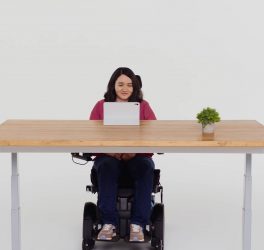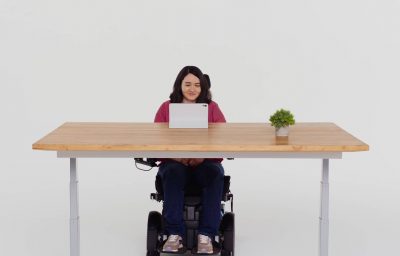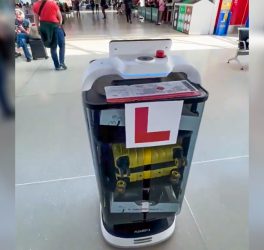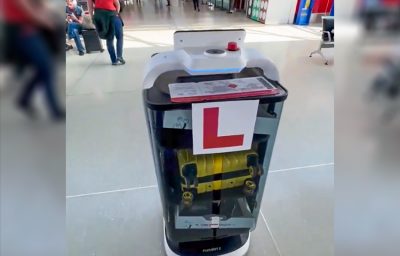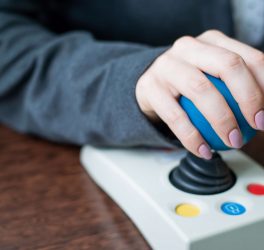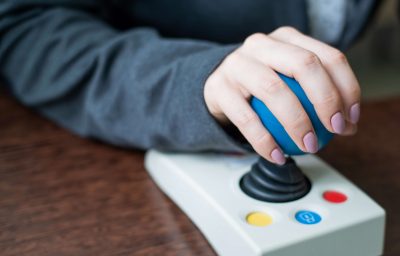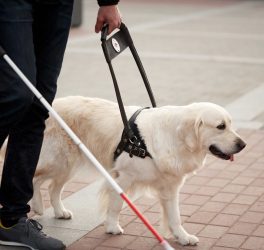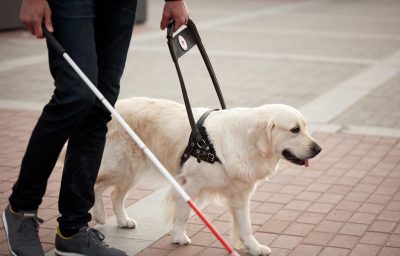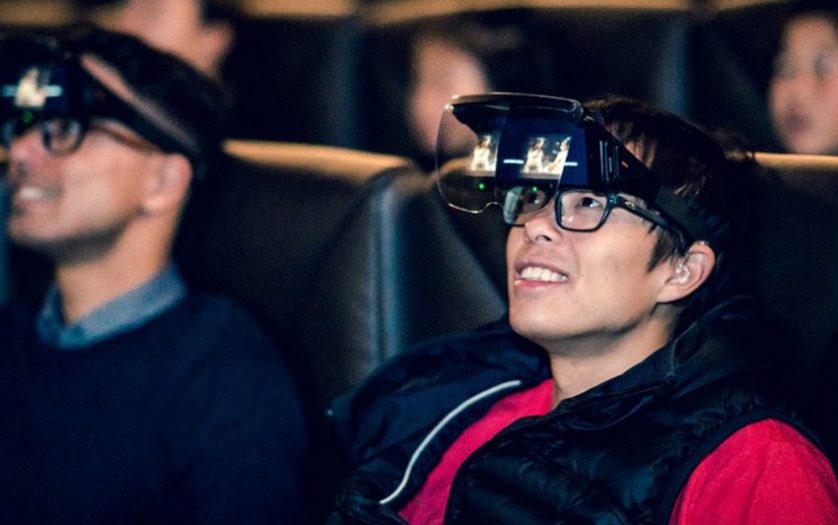
Auckland, NZ – Researchers from the Auckland Bioengineering Institute, at the University of Auckland, have developed a new technology that allows people who are deaf or hard of hearing to watch a movie at whatever cinema they like, and never miss a line of dialogue.
The device, called the Vivify headset, uses augmented reality to project subtitles below the cinema screen. A commercial trial of the headset is currently being run through Event cinemas in Newmarket, Auckland.
The system was developed by Marco Schneider and Tony Tse when they were both studying their PhD at the Institute.
Tony was investigating an underwater hearing aid for divers inspired by the mechanism of fish hearing, and Marco was developing a computational framework for analysing joint health from medical imaging data. (Marco is now a research fellow at the Institute, and Tony is completing his PhD.)
The idea for the device came out of a late-night conversation, when they were planning to watch a movie and Tony, who is hearing disability, expressed his wish that more movies came with subtitles.
If you would like to use the device when you next visit, you can book a pair of headsets through the Vivify website. The pair also plan to run free trials over the next few months which, for interested participants, will include a free movie admission and the free use of the headsets.
Find out more about Vivify Free Trials.

